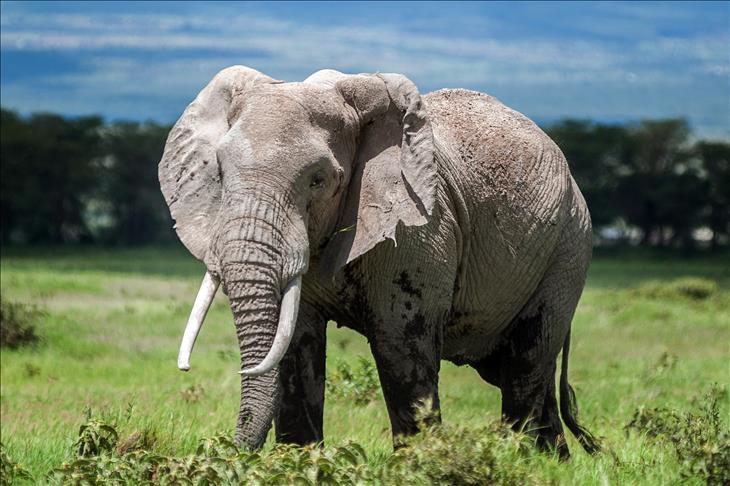
BANGKOK
Thailand has long revered its elephants and the huge animals are a staple of the country’s tourism industry but a spate of attacks on vehicles has caused alarm about their relationship with humans.
Four incidents in the Khao Yai national park, northeast of Bangkok, since the beginning of the year have seen wild elephants damage vehicles and raid a park canteen, local media reported.
Experts have warned visitors to the park, which is home to at least 300 wild elephants, to be especially careful at this time of year when the mating season makes bull elephants particularly aggressive.
In one incident, a furious elephant charged a car whose driver was honking the horn and in another the animal, a young male, climbed on to a vehicle’s bonnet as a family sat inside. Nobody was injured in any of the incidents.
Patarapol Maneeorn, a government veterinarian, told The Nation newspaper that elephants would not normally attack vehicles but could do if stressed. When males reach reproductive age they are forced from their herd to prevent mating with blood relatives.
"In the mating season, the elephant might have developed some stress,” Maneeorn said. “Moving vehicles might have added to the tension.”
Park chief Kanchit Srinoppawan urged visitors to take care if they see an elephant while others called for the flow of tourist traffic to be diverted away from the elephants’ territory.
Mattana Srikrajang, from the Department of National Parks, Wildlife and Plant Conservation, said an increase in cars crossing the park heightened the risk of elephant attacks on vehicles.
Thailand has a deep respect for elephants. The animal featured on the national flag until 1917 and can still be seen on the Royal Thai Navy’s ensign. King Bhumibol owns ten auspicious ‘white’ elephants that are “believed to be vital to the wellbeing and prosperity of the Kingdom,” according to the Thai Elephant Conservation Center.
Incidents involving elephants have increased in the last ten years as roads and farmers encroach on the animals’ territory.
On the fringes of the Kui Buri national park, in central Prachuap Khiri Khan province, farmers have erected electrified fences to prevent elephants raiding maize and sugar cane fields. Home-made rockets are also used to scare off foraging elephants.
Similar scenes happen regularly at Khao Ang Rue Nai wildlife sanctuary, in Chachoengsao province, southeast of Bangkok, park chief Sermpan Saliman told the Bangkok Post.
“Food shortages in the forest are driving elephants out in search of food,” Saliman said. “We don’t want to see them being poisoned or shot dead after eating the farmers’ crops.”
Saliman advocated transferring some elephants to other national parks to solve the overcrowding in Khao Ang Rue Nai, where the wild population has more than doubled from 170 to 350 over the last ten years.
The total population of wild elephants in Thailand is estimated at around 3,000.
Anadolu Agency website contains only a portion of the news stories offered to subscribers in the AA News Broadcasting System (HAS), and in summarized form. Please contact us for subscription options.

